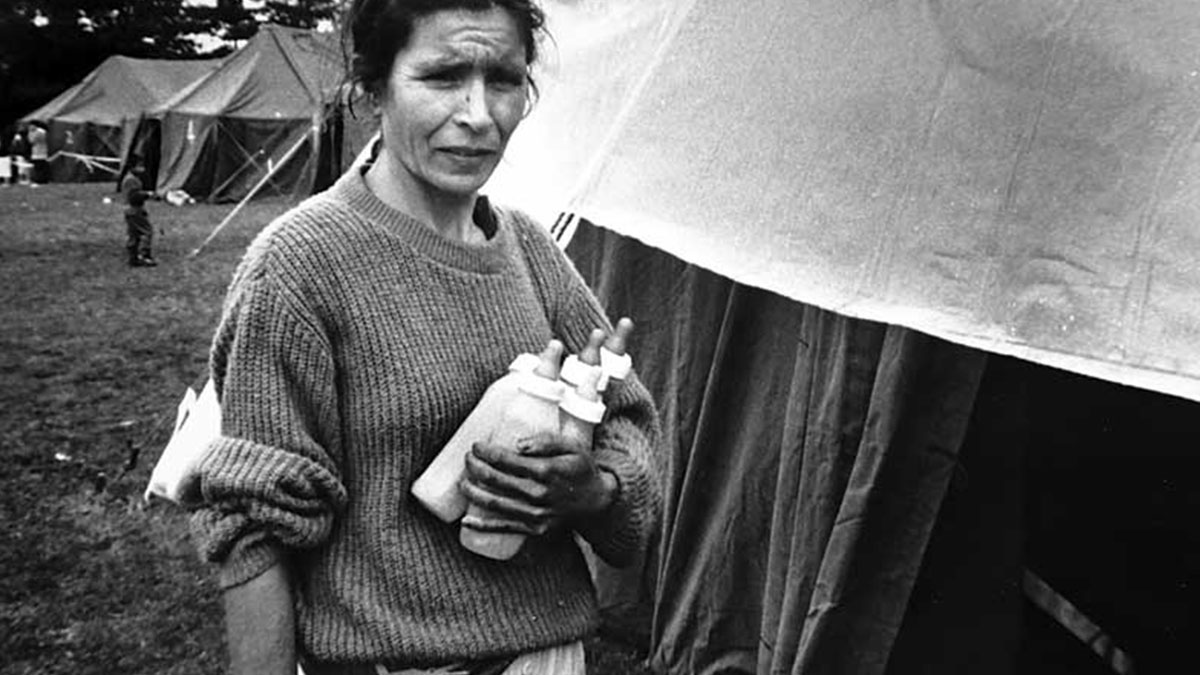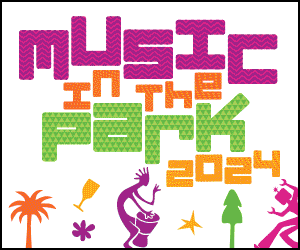Daniel J. Story was a second-grader living in the Midwest when the Loma Prieta Earthquake struck California on Oct. 17, 1989. He recalls it flashing on the news, and his teacher being worried about people she knew in the area.
But Story admits he did not know much else about the disaster—including the fact that the epicenter of the 7.1 quake was in Santa Cruz County.
“I’d always thought of it as the 1989 San Francisco Earthquake,” Story said. “There are good reasons for that; the greatest loss of life was there, for sure. But not everyone knows that it actually hit hardest right here.”
Story, the digital scholarship librarian for UCSC, is series producer of the new documentary podcast “Stories from the Epicenter,” which will be released in full on Saturday, Oct. 17, the 31st anniversary of the quake. The podcast will have 10 parts, each focusing on specific regions and aspects of the disaster, which killed 63 people and injured 3,457.
The project formed after Story was assigned to work on a special digital exhibit for the quake’s 30th anniversary last year. He was pointed toward a collection of archived audio interviews that were done in 1990 by oral history students, who had been asked to interview people about their earthquake experiences.
“It didn’t quite fit into the exhibit, but I just found the interviews so compelling,” Story said. “I thought it would be great to do something with them.”
Having a background in podcasts, Story, who had recently earned his Ph.D. and moved to the area, assembled a small team of students to work on the project. He also partnered up with the Santa Cruz Museum of Art and History, the Pajaro Valley Historical Association and Santa Cruz Public Libraries.
Story says, initially, the documentary was only going to be a few episodes long. But the more people he spoke with, the bigger the project became.
“I’d interview one person and they’d say, ‘This is a great idea. You should talk to this other person.’ And I couldn’t help myself … I think in the end, we ended up with just under 30 interviews—and those were just the new ones,” he said.
One archival interview in particular stood out. Barbara Garcia, founder of Salud Para La Gente, was recorded by a student in 1990. The “compelling” interview prompted the podcast team to dedicate one full episode to Watsonville.
UCSC alumna Madeline Maria Carpou took the helm of the episode, which delves into Watsonville’s complicated response to the quake, focusing on the Latinx community.
“After doing some research … it really became clear that Watsonville was the community hit hardest,” Carpou said, “and that there was a more nuanced story to tell.”
In addition to the Barbara Garcia interview, the team reached out to current Watsonville Mayor Rebecca Garcia, who recalled what she and others went through in the days, months and years following the disaster. Emergency response had been lacking, and the already critical housing shortage for the town’s immigrant population ballooned.
“Barbara and Rebecca put so much of their lives into helping the community,” Carpou said. “I could sense their frustrations in dealing with the city, the county …. It was so difficult, really like beating their heads against a hard wall. But they were so dedicated. They just kept getting things done.”
Carpou said that working on “Stories from the Epicenter” has been an enlightening experience. She, along with Digital Scholarship Student Assistant Thomas Sawano, were the primary co-producers along with Story.
“It was very collaborative,” she said. “We all came from different backgrounds, and this was our first podcast project… but it came together really well.”
A free launch event for “Stories from the Epicenter” will be held Friday at 5:30pm on Zoom, with a moderated discussion, clips from the podcast and a Q&A session. Registration is required and capacity is limited.
Story admits there have been moments when he wondered if 2020 was the right time to release the podcast. The Covid-19 pandemic has prompted many local people to draw comparisons to the earthquake and its effect on the community.
“Overall, though, I feel like it can be quite helpful to think about it,” he said. “You get a window into how people addressed these types of problems.”
Added Carpou: “It’s cathartic, in a way. We can look back and think, ‘It was awful, but we got through it.’ I think we all need to remember that right now.”
The first two episodes of “Stories From the Epicenter” are now available to stream on multiple podcast platforms. The final eight episodes will be added Saturday. For more info, visit: guides.library.ucsc.edu/DS/DSC/Projects/Epicenter.














